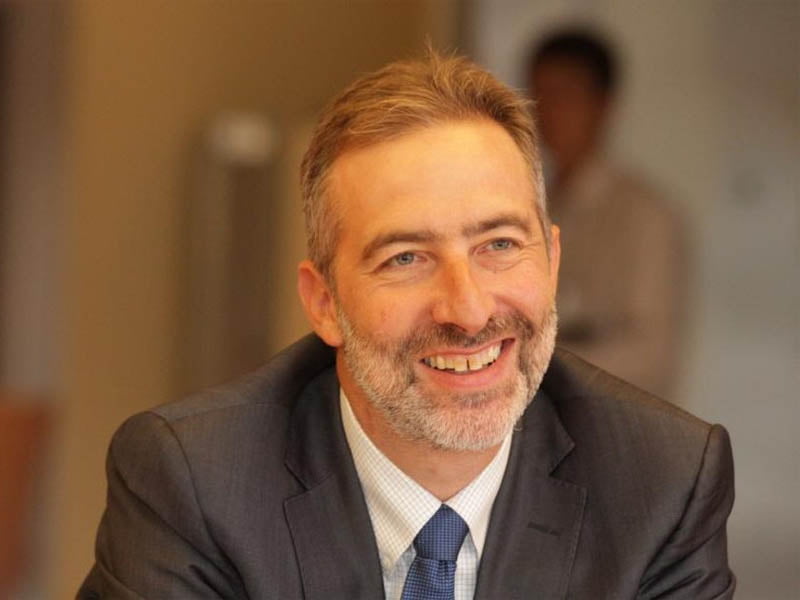Industry policy-makers had become “too obsessed” with the importance of STEM skills to the jobs of the future and overlooked humanities at their peril, says Saul Singer, the co-author of the seminal book on tech ecosystems Start-Up Nation.
Mr Singer, who is also a board member at Innovation and Science Australia, says the humanities are going to be more important than ever. He recommends that we all read Humans are underrated by Geoff Colvin and to get real about what roles consumers will want humans to perform in the future, because they will most certainly remain in demand.

Speaking at an open lecture at the University of Technology, Sydney (UTS) on Wednesday, Mr Singer says the three great human skills that will be needed in the so-called jobs of the future are empathy, storytelling, and teamwork.
“Of course we need all of those engineers and physicists and the skills like that … but we need them to be human first,” Mr Singer said.
“There is not only a place for humanities [in learning and education], I think the humanities are going to become more important than they ever have been before,” he said.
“I could get into a little trouble saying this here, but I think we’ve become a little obsessed with STEM.”
A faster and better way to produce well-rounded and skilled workers for the jobs in the future would be to re-engineer our out-dated systems of education.
In a world in which Google knows everything, people are no longer hired for what they know, but rather for what they can do with what they know. And that has more to do with problem-solving across a range of disciplines.
Mr Singer is in Australia for only the second time, in order to attend a meeting of the Innovation and Science board.
The ISA board is a bit of a Who’s Who of tech and business ecosystem, as you would expect. Maile Carnegie, Scott Farquhar, Paul Bassat and Daniel Petre are among the star-studded cast, joining chairman Bill Ferris and deputy chair (and the Commonwealth’s chief scientist) Alan Finkel.
Saul Singer is the ISA’s only overseas-based board member, although former GE vice-chair Beth Comstock had also been a director until last year.
He was invited to join the board in early 2016 after meeting separately with then Industry minister Christopher Pyne and his assistant minister for innovation Wyatt Roy just after the launch of the NISA-inspired Ideas Boom.
It is a testament to the spectacular success of the Start-Up Nation, which has been translated into more than 30 different languages since it was first published in 2009, that Mr Singer has spent a decade circling the globe and presenting keynote speeches at startup conferences in ecosystems all over the world.
Start-Up Nation was a breakthrough book because it chronicled the ingredients that created such a spectacularly efficient ecosystem.
That is, the highest density of startups [per capita] in the world, the highest level of VC, and the highest per capita R&D spend in the world (where it vies with South Korea for the top spot at around 4.5 per cent of GDP.)
But in a standard part of his presentation, Mr Singer says as he travels to ecosystems around the world: We can’t all be Israel. We can’t all be Silicon Valley. Economies are different. Skills are different. Geography is different.
Building an ecosystems means finding your own way, finding competitive advantage. Finding what works and what does not.
He definitely doesn’t recommend following the Israeli experience (he nominates the Big Three as no resources, a bad neighbourhood and no water).
And although the flat reporting structures and team-oriented problem solving of the Israeli Defence Force had a huge influence on creating an entrepreneurial culture in Israel, he absolutely does not recommend either the introduction of compulsory national service or the opening of hostilities with regions neighbours.
Despite not knowing the Australian context, Mr Singer has had a pretty good view of intellectual elements of our local ecosystem.
Asked where Australia should be placing its chips – in the context of a budget next week – he doesn’t deviate at all from the ISA script, pointing to the ISA 2030 strategy’s National Missions as a good place to start.
Mr Singer’s presentation at the UTS focused on three key sectors where disruptive innovation will have maximum impact, or sectors where the most good can be done by leveraging available technology: these are in Health, Education and Cities.
Innovation and Science Australia’s recommended first National Mission is to make Australia the healthiest nation on earth. It sounds like a starry-eyed vision from a nanny-state ivory tower. But achieving the mission would require spectacular innovation – and would result in the creation of extraordinary commercial value exploitable on global basis.
The second of the National Missions recommended by the ISA is – to paraphrase – to save the barrier reef. Without specifically mentioning the ISA or the National Missions, a pre-budget leak revealed that government has earmarked nearly $500 million toward measures to save the reach from a host of threats.
No mention yet of what happens to the Heath National Mission in relation to Scott Morrison’s third annual budget. But it is surely on the radar.
Do you know more? Contact James Riley via Email.

